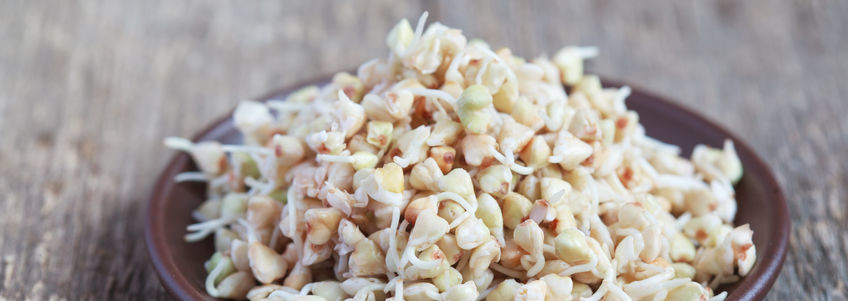
You’ve probably noticed sprouted grain products sprouting up everywhere. There’s a reason bakers and customers are jumping into this trend.
Some of the key benefits are:
- Increased amount of vitamins and minerals
- Increased bioavailability of nutrients
- Rich source of fiber
- Increased digestibility
- Some sprouted grain flours have double the shelf life of conventional whole wheat flour
- These products taste delicious!
How does sprouting work?
When a grain is allowed to germinate, amylases, proteases and other enzymes are mobilized, modifying the grain components and structure. This increases the nutrition and digestibility. Depending how that enzyme activity is controlled determines how successful the sprout is to bake with.
What’s the process for sprouted grain?
It takes place in 3 steps:
1. Steeping: Grains are submerged in hot water in a vessel equipped with mechanical agitation to hydrate the grains and allow them to swell. Residence time varies from 24 to 28 hours where enzymes required for the hydrolysis of starches, proteins and other biological macromolecules are synthesized.
Subsequently, high molecular weight polymers are degraded into smaller compounds such as amino acids, dextrins, and monosaccharides, which can be further mobilized to the embryo to serve as nutrients, essential for growth of the new plant. During this process the grain becomes more friable with increased levels of available organic and inorganic nutrients.
2. Germination: Hydrated grains are transferred to a second vessel where cold and humid air flows through as the embryo continues its growth triggered by steeping (water imbibition). The grains are rotated periodically to prevent the rootlets from entangling into an unmanageable mass. Germination takes from 24 to 28 hours. Flow rate, air temperature and humidity as well as grains’ moisture content and acrospire growth, are monitored.
3. Kilning: Germinated grains are transferred to a vessel where warm and dry air flows through to remove excess moisture and arrest enzymatic activity via heating and reduction of free water. Kilning time ranges from 24 to 28 hours.

